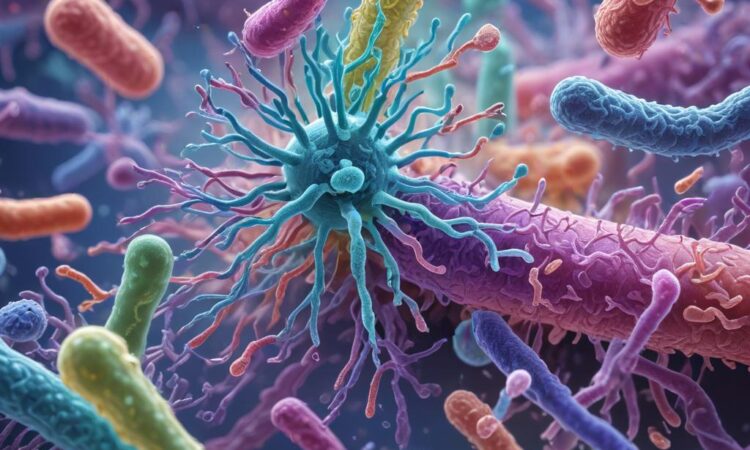Antibiotic Resistance: A Growing Threat
Antibiotic resistance remains a critical concern, with recent studies highlighting the increasing prevalence of resistant bacteria and the urgent need for new treatments. The World Health Organization (WHO) has declared antibiotic resistance one of the top ten global health threats facing humanity.
The Problem of Antibiotic Resistance
Antibiotics are life-saving medications that have revolutionized medicine. They work by killing or inhibiting the growth of bacteria, effectively treating a wide range of infections. However, the overuse and misuse of antibiotics have driven the evolution of antibiotic resistance, making these drugs less effective.
Resistant bacteria can survive and multiply, leading to persistent infections that are difficult to treat. This can result in longer hospital stays, higher healthcare costs, and even death.
Causes of Antibiotic Resistance
Several factors contribute to the rise of antibiotic resistance:
- Overuse of antibiotics: Prescribing antibiotics for viral infections, which they cannot treat, contributes to the selection of resistant bacteria.
- Misuse of antibiotics: Not completing the full course of antibiotics allows resistant bacteria to survive and multiply.
- Antibiotic use in agriculture: Antibiotics are widely used in livestock production, which can lead to the development of resistant bacteria that can spread to humans through the food chain.
- Lack of access to clean water and sanitation: Poor hygiene practices can increase the spread of infections, leading to a higher demand for antibiotics.
Consequences of Antibiotic Resistance
The consequences of antibiotic resistance are far-reaching:
- Increased mortality: Infections that were once easily treatable with antibiotics can become life-threatening.
- Longer hospital stays: Treating resistant infections often requires more time and resources, leading to longer hospital stays.
- Higher healthcare costs: The cost of treating resistant infections is significantly higher than treating susceptible infections.
- Economic impact: Antibiotic resistance can have a significant impact on economies, affecting productivity and healthcare systems.
Addressing Antibiotic Resistance
Addressing antibiotic resistance requires a multifaceted approach:
1. Prudent Use of Antibiotics
The most effective way to prevent the spread of antibiotic resistance is to use antibiotics responsibly. This includes:
- Prescribing antibiotics only when necessary: Antibiotics should be reserved for bacterial infections, not viral infections.
- Prescribing the appropriate antibiotic: Using the right antibiotic for the specific infection can help prevent the development of resistance.
- Completing the full course of antibiotics: Stopping antibiotics early allows resistant bacteria to survive and multiply.
2. Research and Development
Developing new antibiotics and alternative therapies is crucial to combatting antibiotic resistance. This includes:
- Developing new antibiotics: Research and development efforts are needed to create new antibiotics that are effective against resistant bacteria.
- Exploring alternative therapies: Exploring new treatments, such as bacteriophages (viruses that kill bacteria) and antimicrobial peptides, can provide alternative options.
- Developing rapid diagnostic tests: Accurately identifying the cause of an infection allows for targeted treatment and reduces unnecessary antibiotic use.
3. Public Awareness and Education
Raising public awareness about antibiotic resistance is essential. This can involve:
- Educating the public about the risks of antibiotic resistance: Emphasizing the importance of responsible antibiotic use.
- Promoting hygiene practices: Handwashing, vaccination, and other hygiene practices can reduce the spread of infections.
- Encouraging responsible antibiotic use in agriculture: Reducing the use of antibiotics in livestock production can contribute to preventing the spread of resistance.
4. Global Collaboration
Tackling antibiotic resistance requires international collaboration. This includes:
- Sharing information: Sharing data and research findings on antibiotic resistance.
- Developing global guidelines: Establishing global guidelines for antibiotic use and surveillance.
- Providing financial support: Investing in research, development, and implementation of strategies to combat antibiotic resistance.
Conclusion
Antibiotic resistance is a serious global health threat that requires immediate action. By understanding the causes and consequences of resistance, implementing responsible antibiotic use practices, and investing in research and development, we can slow the spread of antibiotic resistance and preserve the effectiveness of these life-saving medications.
Call to Action
We can all play a role in combating antibiotic resistance. Let’s raise awareness, practice responsible antibiotic use, and support initiatives aimed at finding new solutions. The future of healthcare depends on it.

